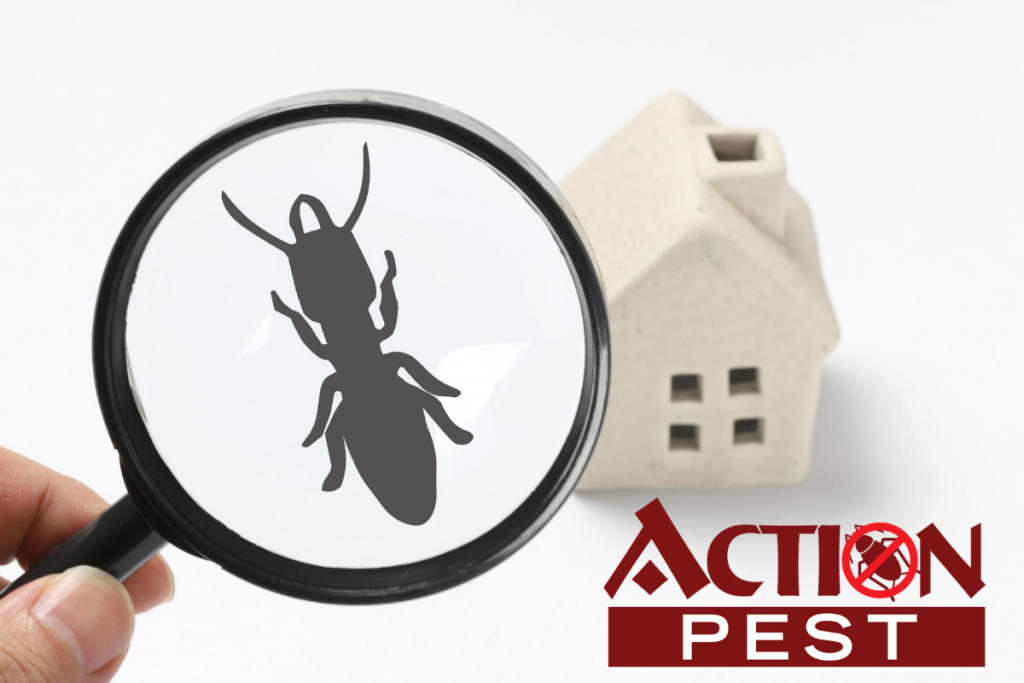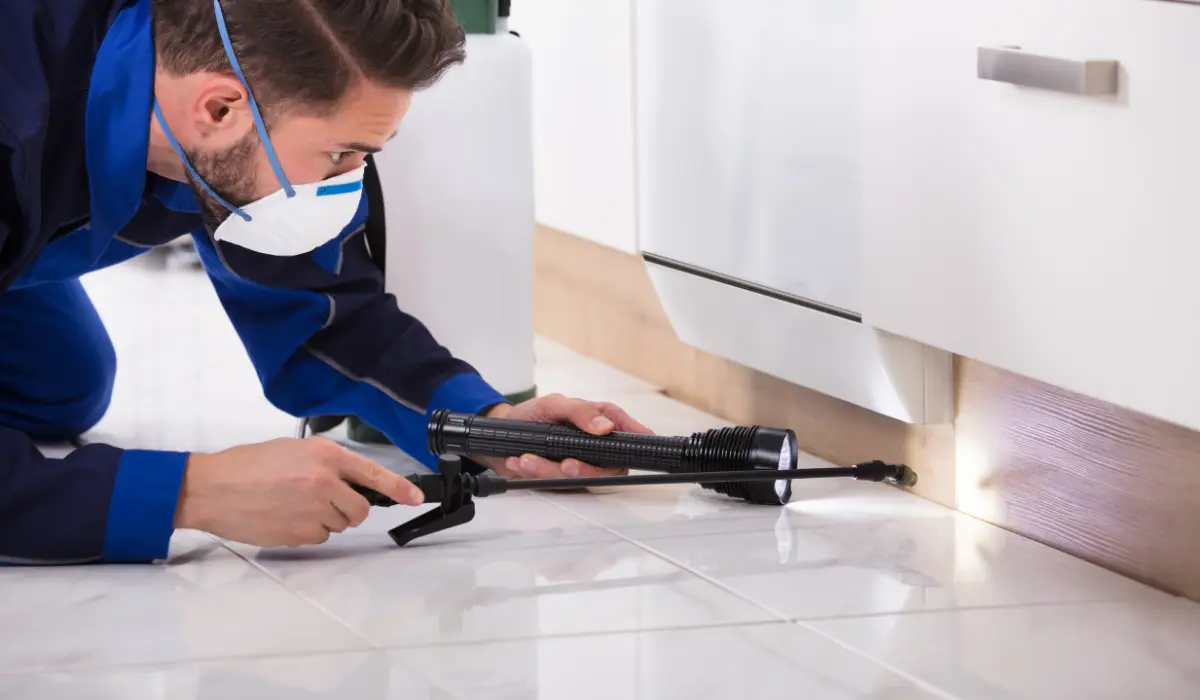Safe and Trustworthy Pest Control for Lasting Protection
The value of secure and reliable parasite control can not be overemphasized, specifically in an era where environmental concerns are vital. Efficient parasite monitoring calls for a complex strategy that stabilizes eco-friendly honesty with the need for effective pest suppression. By exploring green remedies and incorporated parasite monitoring approaches, home owners can attain long-term defense versus invasive species while safeguarding beneficial communities. The nuances of these approaches might not be right away clear, prompting a more detailed assessment of the practices that can lead to lasting bug control outcomes. What actions can be taken to ensure both safety and security and effectiveness in pest monitoring?
Understanding Bug Control Methods
Pest control encompasses a variety of approaches focused on handling and eradicating unwanted pests and rats that can threaten both health and wellness and residential property. Understanding these techniques is critical for effective insect administration.
The main groups of pest control methods consist of mechanical, organic, and chemical approaches. Mechanical methods include physical obstacles and catches to stop insect entrance and capture undesirable varieties. For example, using screens on windows or utilizing sticky catches can significantly reduce insect populaces without presenting unsafe substances.

Chemical insect control is frequently the most identified approach, making use of chemicals to get rid of pests. These chemicals can be reliable however should be used with care to prevent unfavorable effects on non-target varieties and the setting.
Advantages of Eco-Friendly Solutions
Exactly how can eco-friendly services change pest control practices? The fostering of green pest control techniques supplies numerous benefits, substantially boosting the effectiveness and security of bug administration.

One more advantage is the positive effect on local biodiversity. Eco-friendly solutions are designed to target specific parasites while maintaining valuable pests and wild animals, promoting a balanced environment. This technique lines up with the growing consumer need for lasting practices, enhancing the online reputation of parasite control providers.
Integrated Parasite Administration Techniques
The implementation of eco-friendly remedies naturally causes the adoption of Integrated Parasite Administration (IPM) techniques, which better improve insect control efficiency. IPM is an alternative method that incorporates several tactics to handle insect populaces while reducing ecological effect. This strategy highlights making use of organic, cultural, mechanical, and chemical controls, making certain a balanced and lasting method of parasite administration.
One basic element of IPM is the comprehensive analysis of insect task and environmental conditions. By keeping an eye on insect populaces and determining their life process, professionals can implement targeted interventions that interfere with the pest's habitat or lifecycle, lowering reliance on chemical pesticides. Furthermore, social practices such as crop turning and environment manipulation can substantially diminish insect facility and recreation.
Another important part is making use of biological control representatives, such as valuable insects or bacteria, which can normally subdue pest populations. When chemical applications are needed, IPM focuses on using low-risk pesticides and applies them precisely, lessening direct exposure to non-target microorganisms and humans.
Incorporating IPM techniques not only enhances parasite control performance yet also promotes a safer community, lining up with the growing demand for sustainable practices in insect management.
Safe Practices for Property Owners
Comprehending the significance of secure techniques in insect control can encourage home owners to properly take care of parasite problems while guarding their health and the environment. Executing preventive measures and safe methods is important in minimizing direct exposure to harmful chemicals.
Home owners must first analyze their atmosphere for problems that draw in pests, such as standing food, mess, and water waste. On a regular basis cleaning and securing entry factors can deter bugs from invading the home. Using natural deterrents, such as necessary oils or diatomaceous earth, can supply reliable options to chemical pesticides.
When chemical therapies are required, home owners should choose items that are particularly classified as safe for household use. It is important to follow application guidelines thoroughly to avoid overexposure. Furthermore, utilizing targeted therapies in locations where pests are determined, instead of covering spraying, can substantially reduce chemical use.
Lastly, preserving open interaction with bug control specialists is vital. Property owners ought to ask about the safety of products used and request green options whenever possible. By adopting these safe practices, property owners can produce a much healthier living setting while effectively managing insect problems.

Tips for Long-Term Defense
Developing a pest management strategy that emphasizes lasting protection can significantly boost the performance of the safe techniques formerly gone over. To accomplish this, property owners ought to implement normal examinations of their building, concentrating on hidden areas such as attic rooms, basements, and crawl spaces. Early discovery of bug activity is critical in stopping invasions from holding.
These techniques reduce attractants that attract pests into the home. Securing entry factors, such as cracks around doors and home windows, can efficiently block prospective parasite access.
Landscape design should likewise be considered; maintaining plants trimmed and maintaining a range between plant life and the home reduces concealing spots for bugs. Using natural deterrents, such as crucial oils or diatomaceous look at more info planet, can even his comment is here more inhibit infestations without considering severe chemicals.
Lastly, collaborating with a specialist pest control service for routine analyses can offer an additional layer of protection. These experts can provide tailored suggestions and progressed treatments, guaranteeing that your home stays protected against parasites in the long-term.
Verdict
Finally, trustworthy and safe parasite control requires a complex approach that emphasizes green methods and incorporated parasite management. By implementing natural deterrents, carrying out regular evaluations, and keeping correct sanitation, homeowner can significantly decrease pest populaces while shielding helpful bugs and the environment. Collaboration with specialist bug control services boosts the performance of these methods, making sure tailored remedies that navigate to this site supply long-term protection and tranquility of mind against future infestations.
Reliable bug management calls for a diverse approach that stabilizes environmental integrity with the demand for efficient pest reductions. The fostering of environmentally friendly pest control approaches provides countless benefits, dramatically improving the effectiveness and security of pest administration.The implementation of green services naturally leads to the fostering of Integrated Pest Administration (IPM) strategies, which additionally enhance insect control efficiency. exterminator coquitlam. By monitoring pest populations and recognizing their life cycles, practitioners can carry out targeted treatments that disrupt the bug's environment or lifecycle, lowering reliance on chemical pesticides.In final thought, secure and dependable pest control needs a diverse strategy that emphasizes environment-friendly approaches and incorporated pest management